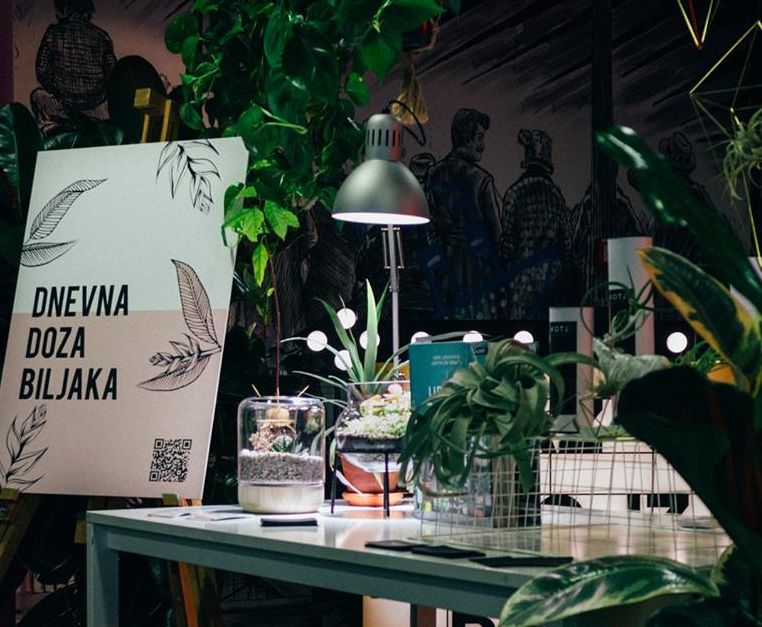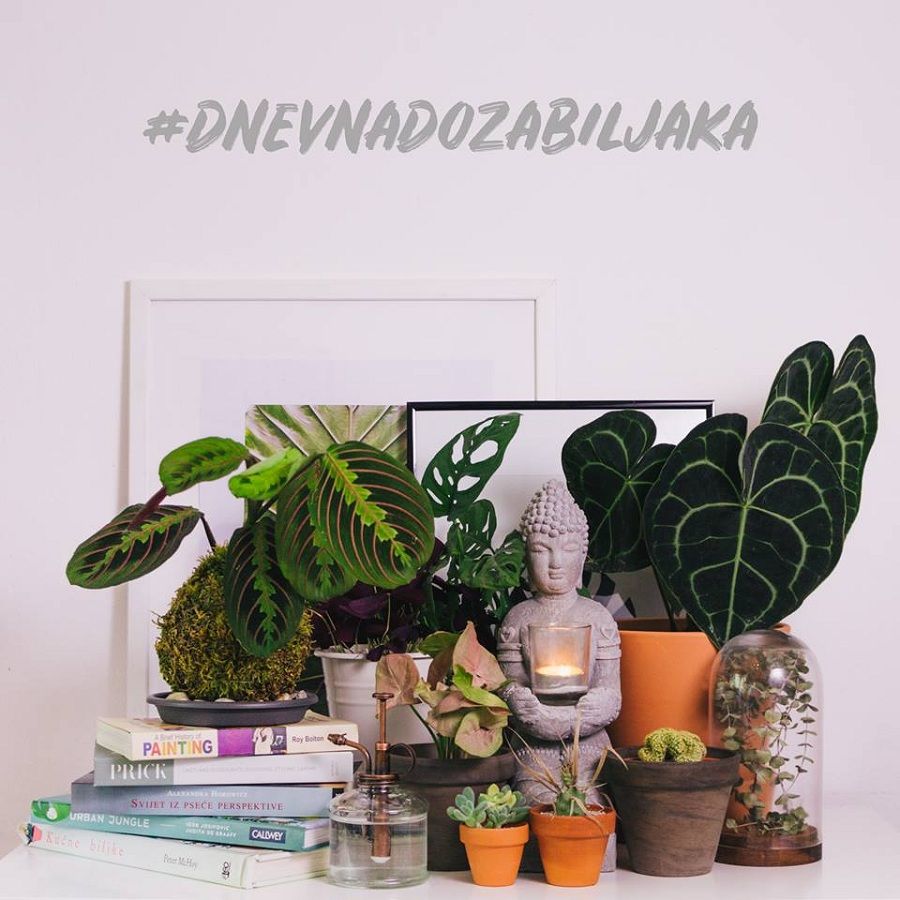Croatian-Slovenian Carnivora Dinarica Project Launched
ZAGREB, February 4, 2019 - The EU-funded Carnivora Dinarica cross-border cooperation project, which is meant to improve the conservation of large carnivores in the northern Dinaric range, has been presented in Croatia's Risnjak National Park.
The project is aimed at enabling better coexistence between humans and large carnivores, particularly wolves and bears in the Natura 2000 areas of Slovenia and Croatia - Javorniki-Snežnik, Notranjski Trikotnik and Gorski Kotar and northern Lika.
This unique landscape of forests in Central Europe is home to approximately 20 lynxes, 60 wolves and 700 bears and their long-term conservation is vital for the preservation of biodiversity and ecosystems in this area, it is said at the presentation.
The project, launched in September 2018, is being implemented until the end of February 2021. It is being co-financed from EU funds as part of the V-A Interreg Slovenia-Croatia cooperation programme and is valued at 2.3 million euro.
WWF Adria will support the project at the national and local levels organising various communication activities.
Project Partners include the universities of Ljubljana and Zagreb, local municipal and county authorities, the Risnjak National Park and WWF Adria.
More news on the nature protection in Croatia can be found in the Lifestyle section.
Gubec Linden Nominated for European Tree of the Year 2019
ZAGREB, February 2, 2019 - The Gubec linden in Gornja Stubica, Krapina-Zagorje County, the ancient living witness of the peasant revolt of 1573, is representing Croatia in this year's contest for the European Tree of the Year, which underlines the importance of old trees in countries' natural and cultural heritage.
The Krapina-Zagorje County Public Institution for the Management of Protected Natural Areas, says on its website that 15 countries are competing this year and that Croatia first took part in 2018.
"This ancient linden is a living witness of the Great Peasant Revolt that took place in 1573. According to the legend Matija Gubec gathered his followers beneath its canopy and led them into a fight for their class rights. Due to its age and historical significance the linden was declared a protected natural monument. The fact that the Croatian Forest Research Institute Jastrebarsko has grown the seedlings of Gubec linden using vegetative propagation method proves how valuable it is to our people," the public institution says on its website.
"The European Tree of the Year doesn't focus on beauty, size or age but rather on the tree's story and its connection to people. We are looking for trees that have become a part of the wider community," the European Tree of the Year project says on its website.
Gubec's linden was nominated by the Dubrovnik-Neretva County Public Institution for the Management of Protected Natural Areas.
Voting for the European Tree of the Year lasts from 1 to 28 February at https://www.treeoftheyear.org.
More news about nature in Croatia can be found in the Lifestyle section.
100,000 Common Quails Killed Annually by Poachers in Croatia
ZAGREB, January 13, 2019 - Poachers kill at least 40,000 common quails each year in Croatia, while activists of the Croatian society for the protection of nature and birds estimate that this number goes as high as 100,000. Therefore, the activists of that society and of the Biom nongovernmental association have declared 2019 to be the year of common quails.
Mate Zec, a Biom coordinator for prevention of poaching, has recently said that in 2014, an estimated 40,000 birds of this kind were poached, however, the real statistics may be two and a half times higher. He also warns about the use of illegal hunting means such as quail decoys.
The Croatian hunting legislation prescribes prison sentences of up to three years for the use of illegal decoys. Nevertheless, bird preservation activists detected as many as 51 common quail decoys last year.
From August to October, tens of thousands of common quails migrate over our country, and many of them do not survive the journey due to the use of hundreds of decoys, says Tibor Mikuša of the Croatian society for the protection of nature and birds.
The Biom association warns about inadequate capacities in Croatia for prevention of poaching, and a low public awareness about the harmful effects of poaching.
More news on the nature protection issues in Croatia can be found in our Lifestyle section.
Social Network Project Brings Urban Jungle Trend to Croatia
“Dnevna Doza Biljaka” (Daily Dose of Plants) is a new Instagram and Facebook project that is steadily growing and has the goal of starting the urban jungle trend, which is very popular abroad. This is the first such project in Croatia, and it has been developed by Tomislav Štrkalj and Leon Božić, reports 24sata.hr on November 25, 2018.
“This is something we have been talking about for a while. We noticed that Croatia does not seem able to accept the urban jungle trend which is very popular abroad. We wanted to start it in Croatia as well, but we delayed it for a while because we were not sure whether it would make sense to our people and what would be the reactions. However, earlier this year we decided to step into the digital rainforest,” the founders explained.

The reactions were great, and a community of greenery lovers developed around their initiative. “People send us photos of their new plants, seek advice for those which they have, ask us to assist them in their projects. People have finally dared to incorporate plants into their living spaces, and now they ask us for advice, as well as where they can buy a certain plant or a piece of equipment,” Tomislav said.
“After each workshop, we get asked when another one will take place and whether we can visit other towns besides Zagreb. The community tells a really beautiful story about the love which comes out from something as simple as a plant in front of a window,” Leon said, adding that their initiative is a Croatian product. “The name of the project is in Croatian, all texts are written in Croatian and we promote local brands and crafts we trust. We knew that we might lose some of the followers in other countries, but we believe it is worthwhile investing in the community and showing that there is room for good ideas in Croatia as well,” Leon explained.

They have attended numerous fairs, met some of their idols and created wonderful friendships, including with the head of the Zagreb Botanical Gardens. The number of followers is growing daily. They brought together experienced gardeners, but also beginners who are just discovering the joy of living in a green oasis.
Their most important advice is to find a good site for your plant. “All plants like the sunlight, but it has to be mild sunlight that will not burn them. Western windows are an enemy to the plants; they will prosper if you put them in front of windows looking in other directions. When you learn the basics, you can really enjoy every new leaf and flower.”
For more on social media in Croatia, click here.
Translated from 24sata.hr (reported by Antonela Žgela).
Exploitation and Industry Threatening Croatia’s Biodiversity
ZAGREB, November 1, 2018 - World Wide Fund For Nature (WWF) Adria has warned that excessive exploitation and industry are the biggest causes of the loss of biodiversity, and the situation in Croatia is similar, although not as alarming as in some other parts of the world.
In our region, the state of nature is not completely alarming but public management of natural resources is disastrous, often starting with a good idea and ending with poor implementation, WWF Adria says, citing as an example Croatia's Hunting Act.
According to the WWF's Living Planet Report 2018, human activity is felt on 75% of the Earth's surface. Current trends suggest that by 2050 less than 10% of the Earth's surface will remain without human activity. Wildlife accounts for less than 5% of the living planet whereas humans and domestic animals, mainly for human consumption, account for 96%.
In recent history, the lynx and the wolf were almost extinct in Croatia and only the bear population is growing. As many as 93% of estimated fish stocks in the Mediterranean are overfished and the situation in the Adriatic is very similar. This is a major threat to biodiversity.
One in ten fish species is risking extinction due to the construction of the hydro-energy infrastructure, which WWF Adria says is mainly unnecessary as it accounts for less than 5% of the total electricity produced.
The incentive system in the energy sector is no help as it provides for spending taxpayers' money on the destruction of the basic life resource, on which citizens have no opportunity to decide, WWF Adria says. "In Croatia, we use nearly two planets-worth of resources a year, which is terrifying. We must find a better model of using natural resources and agree on how we can live in harmony with nature, on which we depend," says Andrea Stefan of WWF Adria.
If you want to read more about Croatia's nature and environment, click here.
Greenpeace’s Whales Occupy Zagreb Main Square
Plastics in the seas is a growing problem.
Sava Parks Network Protecting the River in Four Countries
ZAGREB, October 14, 2018 - The Sava Parks network of protected areas in the Sava River basin has been granted 1,604,137 euro from EU funds for a new project that will be carried out over the next three years in four countries to find an effective method of suppressing and removing invasive alien plant species.
Citizen Planting Trees All Around Zagreb
Just last year he planted eleven trees.
Natural Disasters Causing Billions in Damage
ZAGREB, October 6, 2018 - Material damage from natural disasters amount to billions on the year while budget funds are limited, a state-secretary in the Finance Ministry Zdravko Zrinušić said on Friday and added that the government has recognised the need and has embarked on drawing up a new law to relieve and eliminate the consequences of natural disasters in an effort to improve the system of allocating aid.
After Recovery, Seven Griffon Vultures Take to the Skies
The birds spent the summer at the recovery centre on the island of Cres.

